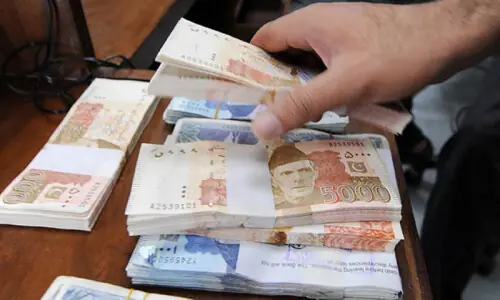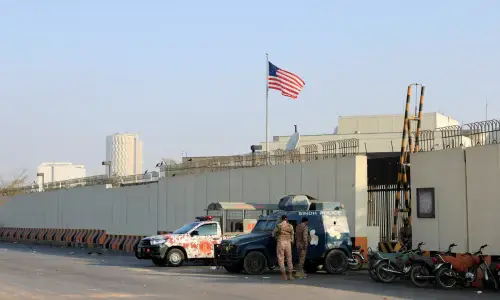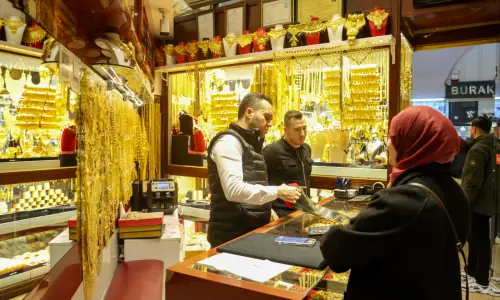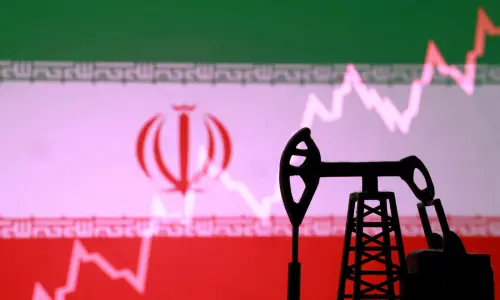KARACHI, Dec 8: They call themselves Fanna-Fi-Allah and they are in Pakistan for “building bridges through music”.
The American Qawwali band that has deep roots in Pakistan, especially Sindh, as several of its members have studied with Qawwali greats here for more than a decade delighted a crowd of over 500 people at the Beach Luxury Hotel on Sunday evening.
“It is a great honour for us to be performing here,” said Tahir Faridi, the leader of the group. “We perform internationally spreading the message of peace and love among the people. This is how we have also been helping the people in America gain a better understanding of Islam and also Sufism,” he added.
“Unfortunately, our whole group couldn’t be here due to visa issues but we are glad that our friends from Pakistan from whom we have learnt this great art have joined in to make this concert possible to day,” Mr Faridi, who was there with Saleem Shah and Amna Chishti from the US, said.
From Pakistan they got reinforcement in the form of Ustad Dildar Hussain Khan, whom they respectfully referred to as their teacher, along with Aziz Mian, Abrar Hussain, Anwar Chishti and Saagar.
Dressed like typical qawwals but with ajraks around their necks, these Americans started the evening with Hamd o Sana. “Before the moon, sun, starts and sky there was only You … Allah Hu, Allah Hu,” Tahir Faridi recited.
The Hamd was followed by Naat, “Dil jis se zinda hai” in respect of the Holy Prophet (peace be upon him) and “Munn ka tu maula, Ali Ali maula”. The clear dialect of the Americans was most impressive. Nowhere could one tell that these qawwals were not from Pakistan or their mother tongue was something else other than Urdu. Even when they performed a Punjabi qawwali “Ali de naal, julay laal”, one could not say that they were not fluent in that language. They are also familiar with the poetry of Allama Iqbal as was evident from their next qawwali “Dyar-i-ishq mein apna makaam paida ker”.
Ustad Rahat Fateh Ali Khan, Pashupati Nath Mishra, Sher Ali Khan and Muazzam Qawwal are Tahir Faridi’s other teachers in music. He honed his harmonium skills with Rahat Fateh Ali and himself teaches vocal and harmonium music in Pakistan as well as in India.
The group has also been performing in the Sufi shrines in Pakistan during festivals, which include the shrines of Hazrat Data Ganj Bakhsh in Lahore, Baba Ganj-i-Shakar in Pakpattan, Baba Bulleh Shah in Kasur and Baba Lasuri Shah in Faisalabad. In India, they have performed at the tombs of Khwaja Nizamuddin Aulia, Hazrat Amir Khusrau, Pir Inayat Khan and Khwaja Mueen-ud-Din Chishti.
The band is touring Pakistan this month as part of a US State Department-sponsored programme. It will also perform in the Punjab next.
Speaking on the occasion US Consul General in Karachi Michael Dodman said that he was glad that the group would be performing on Sindhi Culture Day. “Qawwali is such a big part of Sindhi culture,” he said. “Through the members of the Fanna-Fi-Allah group qawwali from Pakistan went to the United States and has come back to this country from where this journey of music began for the members of this group,” he added.






























